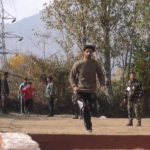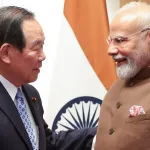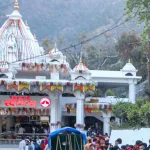Festivals in India represent the socio-cultural moorings that have stood the test of the times. Most of the festivals in India are based in rural place consciousness. The reason being that human development in India has been rooted in the importance of food and the economy derived from it. Agriculture has been the cornerstone of the Indian emancipation that is rooted in the rural landscape. Jammu and Kashmir is not averse to it. Villages in Jammu and Kashmir showcase this rich legacy that has made people self-sufficient. But this has come at a cost. Farmers have paid a heavy price to free themselves from theo-fascism of the landlords who exploited the peasants and robbed them of their rights. They were subjugated and forced to abandon their rights on the lands that belonged to them. Not only that they were subjected to the worst human rights violation, it included the snatching of their agricultural produce. Jammu region of the Union Territory has the distinction of leading the movement for the empowerment of the poor farmers. Baba Jitoo of Jammu is the epitome of the farmer’s freedom from the exploitation of the cruel landlords. He protested against the high handedness of the fascists who trampled the farmers and their rights. He was a highly religious man who had the blessings of Shree Mata Vaishno Devi the presiding deity of the Trikuta hills venerated not only in Jammu but the entire world for blessing her devotees. Baba Jitoo was a blessed and pious soul who stood for all farmers and their rights. His movement is the anchor for all farmers and has emerged as a case study to study the genesis of the farmer empowerment. His legacy was upheld by his daughter Bua Kodi who is equally worshipped as the incarnation of the Goddess by the farmers. Baba Jitoo sacrificed his life by fighting against landlord fascism. He is worshipped as God incarnate by the farmers not only in Jammu but various parts of Punjab and many other states. To honour his legacy a weeklong fair (mela) is organised in Jhiri at Jammu. It started on this full Moon day(Poornima).People from many states in India have converged at Jhiri. He is believed to have supernatural powers that cure people of many ailments. This festival is organised with religious fervour where people organised community congregations. This festival has emerged as the insignia of the rural tourism in North India that has created a tourist gaze having many facets. This festival must be adopted as the rural development model with value additions at the policy making level. India is primarily an agricultural economy and this has been proved many times. Jhiri Mela at Jammu has both religious and socio-cultural moorings that appeal to all farmers across the nation. Farmer empowerment initiated by Baba Jitoo of Jammu must be taken to a new level both at policy making level and at the research level by the farmers. There is a need to make a comprehensive model that addresses the concerns of farmers. Jhiri Mela at Jammu is not only a fair but the hallmark of farmer aspirations for making India resurgent. Universities must look upon Jhiri Mela as a case study to develop a new agricultural research framework that has an interdisciplinary approach. SKUAST-Jammu has been trying to do that situating agricultural studies in Agri-Business Management. It is reflected in the specialised course of MBA (Agri-Business) offered by SKUAST-Jammu. But needs a full-fledged independent Institute or Division with permanent faculty that has a broad horizon and expertise. Otherwise, contractual appointments will lead to a debacle and will defeat the cause of the course. It will also lead to the brain drain of the contractual teachers who have spent years teaching this course if their services are not utilised in terms of their expertise and specialisation. Jhiri Mela represents the multiplier effect of agri- business and universities like SKUAST –Jammu must internalise this.
Jhiri Mela at Jammu

Sign Up For Daily Newsletter
Be keep up! Get the latest breaking news delivered straight to your inbox.
By signing up, you agree to our Terms of Use and acknowledge the data practices in our Privacy Policy. You may unsubscribe at any time.
Leave a Comment Leave a Comment
Stay Connected
Latest News
Recent Posts
- PM Modi holds talks with Japan Parliament Speaker on India-Japan ties
- CBK Registers Two Separate FIRs against two Notorious Fraudsters in Land Fraud Case
- Delhi Airport issues passenger advisory amid inclement weather forecast
- Shri Mata Vaishno Devi Shrine Board refutes ‘negligence’ claims on pilgrim tragedy
- Jammu-Srinagar Highway Shut for fourth Day, Over 2,000 Vehicles Stranded







